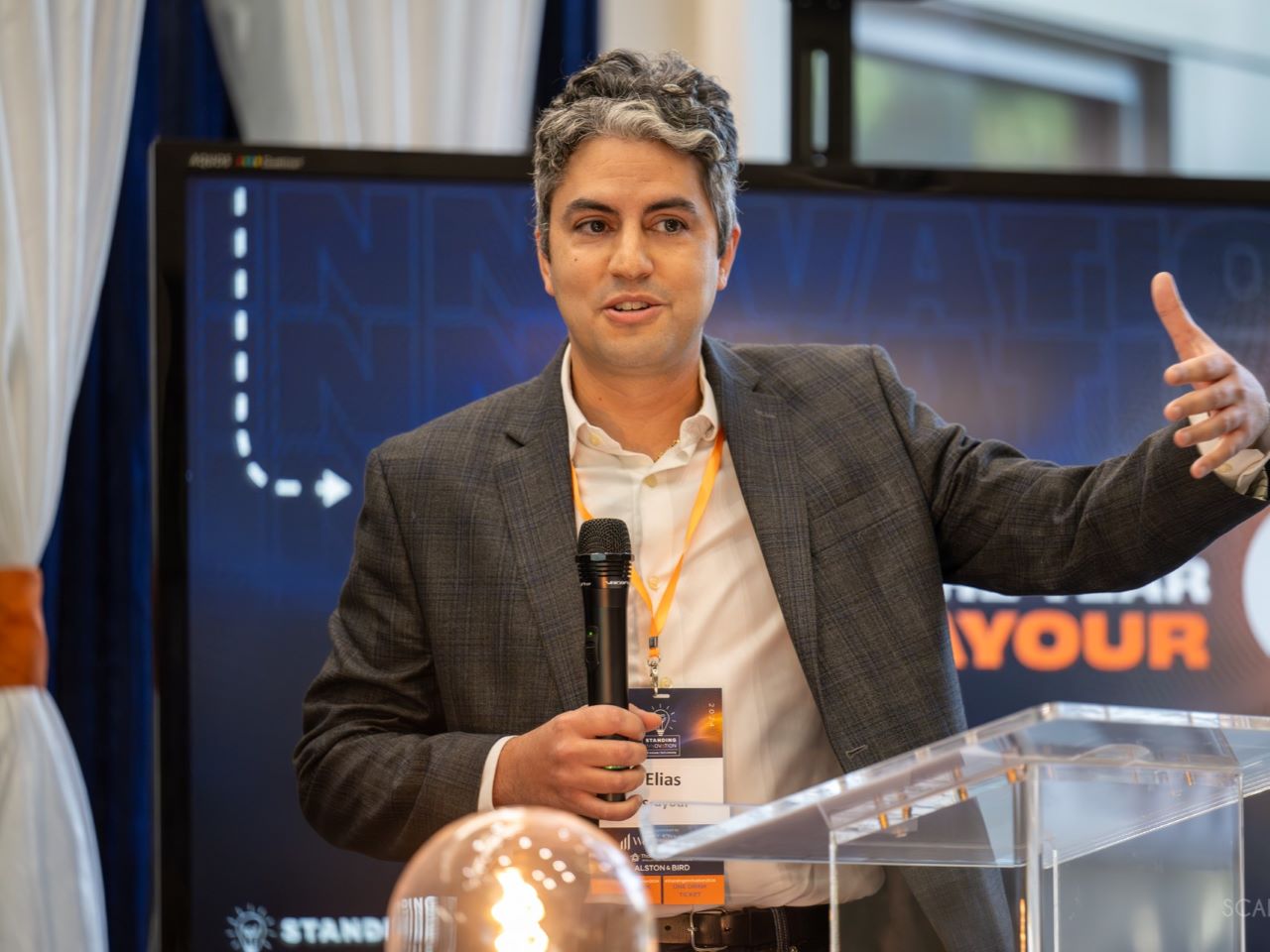
UF Innovate | Tech Licensing hosted its seventh annual Standing InnOvation event on Wednesday, Oct. 30, to acknowledge and celebrate research discoveries by University of Florida innovators in 2024.
Standing InnOvation gives innovators a well-deserved “standing ovation” for disclosing, optioning, or licensing their innovations during the fiscal year, which all continue to grow. In the 2024 fiscal year, which ended on June 30, innovators disclosed 372 new technologies, licensed 121, and started 9 startup companies.
This year’s celebration was a full-day affair. The morning featured two keynotes and a book signing with David S. Rose at Santa Fe College’s Blount Center. Rose is a serial entrepreneur and investor who’s known as an industry guru on the two topics he covered in his talks: Finances 101 and How to Pitch Your Startup.
Rose separately met with nearly 20 UF faculty for lunch to respond to questions they posed on starting a business. Six “speed dating” slots gave companies an opportunity to get personal feedback as they pitched their company and sought Rose’s advice.
In addition, the second InnOvation Showcase occurred concurrently with the Standing InnOvation reception. It featured 14 of the 16 University of Florida colleges and the Herbert Wertheim UF Scripps Institute for Biomedical Innovation & Technology, all showcasing the latest innovations from their researchers.
The 2024 Innovator of the Year
What if we could live in an era in which vaccines could not only treat cancer but potentially
prevent it?
This is the research focus of the 2024 Innovator of the Year, Elias Sayour, M.D., Ph.D..
When selecting the Innovator of the Year, UF considers the researcher’s body of work over time, choosing one who has made significant scientific contributions that have been licensed or taken to the marketplace.
Sayour, an associate professor of neurosurgery and pediatrics, is a bold and pioneering researcher widely recognized for his work in cancer immunotherapy. Sayour’s development of unique mRNA vaccines could be the key to a universal cancer vaccine treatment.
Available treatment options for cancer patients involve local treatment, such as surgery and radiation, and systemic approaches, such as chemotherapy, as the disease often has microscopic tentacles elsewhere in the human body. While chemotherapy can kill the tentacles, it can have debilitating side effects.
Sayour’s technology uses mRNA to educate the human immune system. RNA is the human body’s information highway. Leveraging this “human highway” could allow researchers to reprogram the immune system against cancer. Not only would the immune system be able to fight cancer, but remember it as foreign, fighting it for the rest of someone’s life.
“It is very important for patients … to have an ally like the immune system constantly working on their behalf,” Sayour said.
Sayour’s work combines cutting-edge gene therapy and immunology techniques to create personalized, targeted treatments for patients with tumors. His leadership in translational medicine enables him to bridge the gap between laboratory discoveries and clinical applications, improving outcomes for cancer patients globally.
“Dr. Elias Sayour is a tireless and driven clinician-scientist and one of the premier faculty of the University of Florida. It was my honor to nominate him for the Innovator of the Year award,” said Jackson Streeter, M.D., director of UF Innovate | Ventures.
